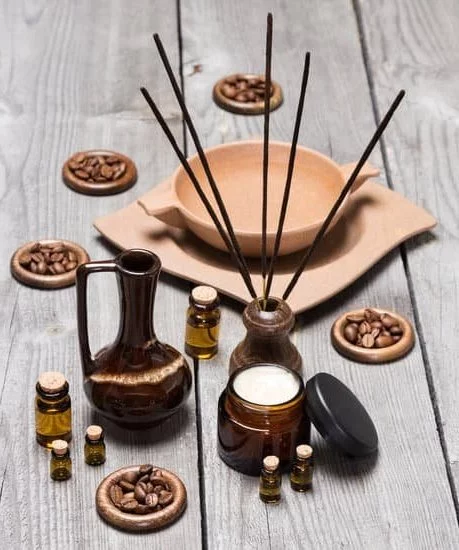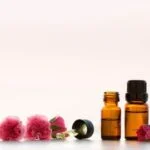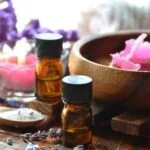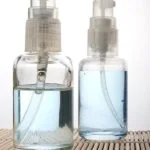Aromatherapy has been used for centuries as a natural healing treatment, and its benefits extend beyond just relaxation and stress relief. One of the lesser-known advantages of aromatherapy is its positive impact on the skin. In this article, we will explore how aromatherapy affects the skin, the science behind it, and the specific benefits it offers for skincare.
Aromatherapy is the use of essential oils derived from plants to enhance physical and mental well-being. When applied to the skin, these essential oils have various effects that can improve the overall health and appearance of our largest organ. From reducing inflammation to promoting cell regeneration, aromatherapy has a wide range of benefits for the skin.
Understanding the relationship between aromatherapy and the skin requires delving into the science behind it. Essential oils contain bioactive compounds that are easily absorbed by the skin, allowing them to exert their effects on a cellular level. Different types of essential oils have specific properties that make them beneficial for addressing various skincare concerns such as acne, aging, or dryness. Let’s explore how these natural plant extracts can work wonders for your skin health.
Understanding the Relationship Between Aromatherapy and the Skin
Aromatherapy has become a popular holistic approach to skincare, utilizing the natural properties of essential oils to promote skin health and overall well-being. Understanding the relationship between aromatherapy and the skin is essential for harnessing its benefits effectively. The use of essential oils in aromatherapy can have a significant impact on the skin, providing hydration, antioxidant protection, and even anti-inflammatory benefits.
One of the key ways in which aromatherapy affects the skin is through its ability to regulate sebum production. Essential oils such as lavender, tea tree, and bergamot have been found to help balance oil production, making them suitable for both oily and dry skin types. Additionally, these oils possess antimicrobial properties that can aid in preventing and treating acne breakouts.
Furthermore, aromatherapy can also improve blood circulation in the skin, which can contribute to a healthier complexion. Certain essential oils like rosemary and geranium are known for their ability to stimulate blood flow when applied topically. This increased circulation delivers more nutrients and oxygen to the skin cells, promoting a glowing and radiant complexion.
Incorporating aromatherapy into your skincare routine can be highly beneficial for maintaining healthy skin. Whether through adding a few drops of essential oil to your moisturizer or using an aromatherapy-infused face mask, there are various ways to experience the positive effects of aromatherapy on your skin.
The Science Behind Aromatherapy and Its Effect on the Skin
Aromatherapy has been used for centuries as a natural way to promote overall health and wellness, including the health of the skin. The essential oils used in aromatherapy have various properties that can benefit the skin in different ways, such as promoting hydration, reducing inflammation, and soothing irritation. But how does aromatherapy affect the skin on a scientific level?
The science behind aromatherapy lies in the powerful compounds found in essential oils. These compounds can penetrate the skin and affect it on a cellular level. For example, some essential oils contain antioxidants that help protect the skin from environmental damage and premature aging. Others have antimicrobial properties that can help fight against acne-causing bacteria or other skin infections.
Additionally, when inhaled, the aromatic molecules of essential oils can travel through the bloodstream and have an impact on the body’s physiological processes, which can also indirectly influence skin health. For example, inhaling certain essential oils may help reduce stress levels, which in turn can improve skin conditions exacerbated by stress such as eczema or psoriasis.
Overall, the science behind aromatherapy suggests that it can positively affect the skin by promoting healing, reducing inflammation, and protecting against environmental damage. Understanding this scientific basis can help individuals make informed choices about incorporating aromatherapy into their skincare routines.
| Benefits | Effects |
|---|---|
| Promotes hydration | Keeps skin moisturized and supple |
| Reduces inflammation | Soothes irritated or inflamed skin |
| Antioxidant properties | Protects against environmental damage and premature aging |
Different Types of Essential Oils and Their Specific Benefits for Skin Health
Aromatherapy utilizes a variety of essential oils, each with its own set of benefits for skin health. These natural oils are derived from plants and contain unique properties that can address various skin concerns. Here are some different types of essential oils and their specific benefits for skin health:
- Lavender oil: Known for its calming and soothing properties, lavender oil can help reduce inflammation and redness in the skin. It is also commonly used to promote relaxation and alleviate stress, which can indirectly benefit the skin by reducing tension-related breakouts.
- Tea tree oil: With its powerful antimicrobial and anti-inflammatory properties, tea tree oil is often used to target acne-prone skin. It can help unclog pores, reduce excess oil production, and combat bacteria that contribute to breakouts.
- Rosehip oil: Rich in vitamins, antioxidants, and essential fatty acids, rosehip oil is prized for its ability to hydrate and repair the skin. It can improve the appearance of scars, fine lines, and uneven skin tone while nourishing the skin barrier.
In addition to these examples, essential oils such as chamomile, frankincense, and lemon also offer unique benefits for skin health. When properly diluted and used according to guidelines, these oils can be incorporated into skincare routines to enhance overall complexion.
It’s important to note that essential oils are potent substances and should be used with caution. Before applying any essential oil to the skin, it’s advisable to perform a patch test to check for potential allergic reactions.
Consulting with a qualified aromatherapist or skincare professional can also provide personalized recommendations based on individual skin types and conditions. By understanding the specific benefits of different essential oils, individuals can harness the power of aromatherapy to support healthy and radiant skin.
How Aromatherapy Can Help With Various Skin Conditions
Aromatherapy has been used for centuries to promote overall health and well-being, and its benefits extend to the skin as well. Essential oils used in aromatherapy can help with various skin conditions, providing relief and promoting healthy skin. But how does aromatherapy affect the skin?
The use of essential oils in aromatherapy can have a direct impact on the skin due to their natural healing and nourishing properties. When applied topically, certain essential oils can help with acne, eczema, psoriasis, and other skin conditions. For example, tea tree oil is known for its antibacterial properties and can be effective in treating acne, while lavender oil has anti-inflammatory properties that can soothe irritated skin.
In addition to targeting specific skin conditions, aromatherapy can also help maintain overall skin health. Essential oils like rosehip seed oil and frankincense oil are known for their anti-aging properties, helping to reduce the appearance of wrinkles and promote a more youthful complexion. The use of these essential oils in skincare products or as part of a regular aromatherapy routine can contribute to healthier, radiant-looking skin.
| Essential Oil | Specific Benefits for Skin Health |
|---|---|
| Tea Tree Oil | Antibacterial properties that treat acne |
| Lavender Oil | Anti-inflammatory properties that soothe irritated skin |
| Rosehip Seed Oil | Anti-aging properties that reduce wrinkles |
Tips for Incorporating Aromatherapy Into Your Skincare Routine
Aromatherapy has been gaining popularity as a natural and holistic approach to skincare. Incorporating aromatherapy into your skincare routine can have numerous benefits for both your skin and overall well-being. With the right essential oils and application methods, aromatherapy can be an effective way to promote healthy, radiant skin.
Choosing the Right Essential Oils
When incorporating aromatherapy into your skincare routine, it is essential to choose the right essential oils that are suitable for your skin type and address any specific skin concerns you may have. For example, lavender essential oil is known for its calming and soothing properties, making it ideal for sensitive or irritated skin. On the other hand, tea tree oil has antibacterial and anti-inflammatory properties, making it effective for acne-prone skin.
Application Methods
There are various ways to incorporate aromatherapy into your skincare routine. One popular method is by adding a few drops of essential oils to carrier oils such as jojoba or almond oil, then applying the mixture directly to the skin as a facial oil or body moisturizer.
Another option is to add essential oils to your bath water for a relaxing and therapeutic experience. Additionally, using a diffuser to disperse essential oils into the air can also provide indirect benefits for the skin through inhalation.
Creating a Relaxing Atmosphere
Incorporating aromatherapy into your skincare routine goes beyond just applying essential oils directly to the skin. It also involves creating a relaxing atmosphere that can contribute to overall well-being and stress reduction. Consider setting up a dedicated space in your home where you can practice your skincare routine with aromatherapy, such as dimming the lights, playing soothing music, and using candles or an essential oil diffuser to set a calm ambiance.
By incorporating these tips into your skincare routine, you can harness the potential benefits of aromatherapy for promoting healthy and radiant skin while also enhancing your overall sense of well-being.
Potential Risks and Precautions When Using Aromatherapy on the Skin
When it comes to using aromatherapy on the skin, there are potential risks and precautions that should be taken into consideration. While essential oils can offer numerous benefits for the skin, it is important to use them with caution to avoid adverse reactions.
Allergies and Sensitivities
One of the potential risks of using aromatherapy on the skin is the possibility of allergies or sensitivities to certain essential oils. Some individuals may have allergic reactions to specific essential oils, leading to skin irritation, redness, or even more severe reactions. It is essential to perform a patch test before applying any new essential oil to the skin, especially if you have sensitive skin or known allergies.
Phototoxicity
Certain essential oils have phototoxic properties, which means they can cause an adverse reaction when exposed to sunlight. This can lead to skin irritation, blistering, or burning. Citrus essential oils such as bergamot, lemon, and grapefruit are known for their phototoxic effects. To avoid this risk, it is crucial to dilute these oils properly and avoid sun exposure after application.
Skin Irritation
Improper use of essential oils can result in skin irritation. Using undiluted essential oils directly on the skin can lead to redness, itching, and discomfort. It is important to always dilute essential oils with a carrier oil before applying them topically. Additionally, it’s advisable to start with a low concentration of essential oil and gradually increase as needed.
Incorporating aromatherapy into your skincare routine can offer numerous benefits for the skin, but it is vital to be aware of the potential risks and take necessary precautions when using essential oils topically. By understanding these potential risks and following proper guidelines for use, you can safely enjoy the skincare benefits of aromatherapy without experiencing any adverse effects.
Conclusion
In conclusion, aromatherapy offers a holistic approach to skincare that can promote healthy and radiant skin. By harnessing the power of essential oils, aromatherapy can provide numerous benefits for the skin, including hydration, soothing, and promoting overall skin health. The relationship between aromatherapy and the skin is complex yet fascinating, with scientific evidence supporting its effectiveness in addressing various skin conditions.
The science behind aromatherapy reveals how essential oils can penetrate the skin and interact with receptors to produce therapeutic effects. Different types of essential oils offer specific benefits for the skin, such as anti-inflammatory properties, antimicrobial effects, and antioxidant properties. These properties make aromatherapy a valuable addition to skincare routines for addressing issues such as acne, eczema, aging skin, and more.
To incorporate aromatherapy into your skincare routine effectively, it is important to use high-quality essential oils and practice proper dilution techniques. Additionally, individuals should be aware of potential risks and precautions when using aromatherapy on the skin. While generally safe when used correctly, some essential oils may cause allergic reactions or sensitivities in certain individuals. Overall, by understanding how aromatherapy affects the skin and taking necessary precautions, individuals can experience the full benefits of this natural approach to skincare.
Frequently Asked Questions
Is Aromatherapy Good for Skin?
Aromatherapy can be beneficial for the skin as it can help in treating various skin conditions such as acne, dryness, or inflammation. Essential oils used in aromatherapy have antioxidant and anti-inflammatory properties that can promote healthier skin.
What Happens if Essential Oils Get on Skin?
If essential oils get on the skin, it is important to dilute them with a carrier oil to prevent irritation or allergic reactions. Some essential oils can be too strong to be applied directly on the skin and may cause burning, itching, or redness if not properly diluted.
What Part of the Body Is Most Affected by Aromatherapy?
The respiratory system and the skin are the parts of the body most affected by aromatherapy. When inhaling essential oils, they can have a direct impact on the respiratory system, promoting relaxation or providing relief from congestion. When applied topically, essential oils can also benefit the skin by addressing various concerns and promoting overall skin health.

Are you looking for a natural way to improve your health and wellbeing?
If so, aromatherapy may be the answer for you.





